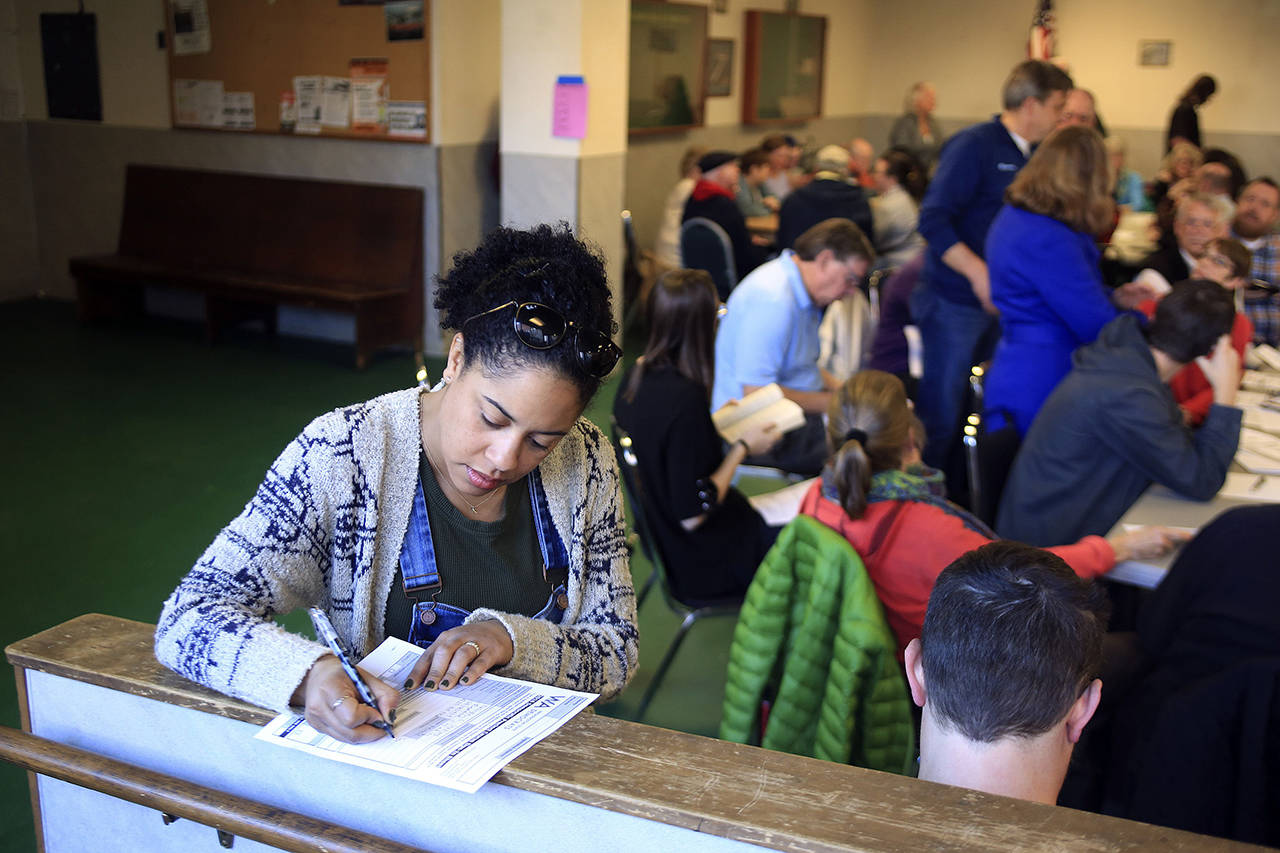OLYMPIA — Washington may have a meaningful presidential primary in 2020.
If it happens, Bernie Sanders and Ron Paul will be among those to thank.
This week the state Democratic Party signaled a greater openness to allocate delegates based on the results of the primary rather than caucuses, which it’s never done before. Nor is it opposed to holding the vote in early March rather than late May as now scheduled, a move that could amplify voters’ voice in the quadrennial selection process.
David McDonald, who holds key seats in the state and national Democratic party operations, delivered the message Monday in a work session held by the state House and Senate committees expected to consider primary reform bills next session. His comments were a big deal as Democratic Party leaders have historically denounced the primary as a pointless beauty contest that costs millions of taxpayer dollars.
“I think I heard more willingness of the Democrats to participate in a primary,” said Sen. Sam Hunt, D-Olympia, chairman of the Senate panel. “A primary is a selection process. You want it to be meaningful. I think there is a good chance at getting something meaningful.”
Republicans moved in 2016 to allot their presidential delegates using the primary results. The party has also endorsed efforts of Republican Secretary of State Kim Wyman to conduct the election in March.
“I think it is better for the voters of Washington state if we vote earlier,” Caleb Heimlich, chairman of the state Republican Party told the committees.
The presidential primary in Washington hasn’t been around long but has stirred its share of controversy.
A 1989 citizen initiative prompted its establishment by the Legislature. Washington held its first primary in 1992. Since then there have been four more while two were canceled — in 2004 and 2012 — for financial reasons.
It hasn’t magnified the state’s influence as some envisioned. That’s because it didn’t do away with the caucus system nor did it require the Democratic and Republican parties to use the results in apportioning their presidential delegates. And scheduling it on the fourth Tuesday in May — one of the latest on the 2020 primary calendar — all but assures the outcome is superfluous.
Enter Paul, a Republican congressman who ran for president in 2012, and Sanders, the Democratic senator who ran in 2016.
In each of those election cycles, supporters of Paul and Sanders barnstormed their respective party caucuses, piled up delegates for their candidates and got themselves into positions of authority in local and state party operations.
Their overwhelming numbers and energy wrought a bit of caucus chaos. And in the fallout of 2016, Democrats formed a Unity Reform Commission that recommended changes including a warmer embrace of government-run presidential primaries as the first determining step in the nominating process.
But here’s what could be a potential stumbling block in Washington.
Many voters in this state don’t like identifying publicly with the Democratic or Republican party. In 2016, people had to check a box aligning themselves with one of those parties if they wanted their vote counted. Those who didn’t check a box didn’t get their vote included in the final tallies and they often let county auditors know how upset they were about it.
There have been times when the state allowed for unaffiliated voters. It’s what Wyman called the “relief valve” because it would let people vote without picking a party and their ballots would be counted but not included in the totals. When the state did it this way in 2000, unaffiliated voters accounted for 40 percent of the 1.3 million ballots cast.
“I feel very strongly that the unaffiliated vote is something voters in our state want,” she said, stressing that she wants it used in 2020.
Heimlich said he doesn’t like unaffiliated voters but it is not a deal breaker for the GOP. They will still use the results to determine delegates.
It is an issue for Democrats. If the intent of the primary is to increase participation and the state’s impact, this doesn’t do it, McDonald told the committees.
“It is not participation if your vote doesn’t count,” he said. “It is simply deception.”
Another concern cited by McDonald is when lawmakers would decide.
The state Democratic Party has until May 1, 2019 to tell the national party how it is going to dole out delegates. Lawmakers would need to make decisions and pass legislation in time for the party to draw up its plan.
“I urge you, whatever you’re thinking is, to communicate it to the party sooner than later,” McDonald said.
Wyman said she is “cautiously optimistic.”
“The clock is ticking and I think the motivation is a little higher than it was four years ago,” she said. “I can’t see how either one of them would go back to the caucus system to select their delegates.”
Jerry Cornfield: 360-352-8623; jcornfield@herald net.com. Twitter: @dospueblos.
Talk to us
> Give us your news tips.
> Send us a letter to the editor.
> More Herald contact information.

























